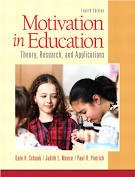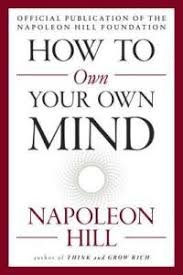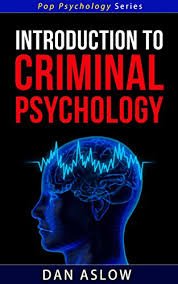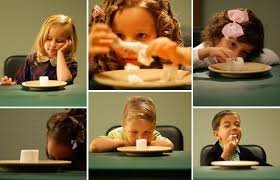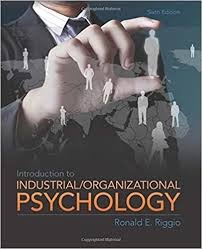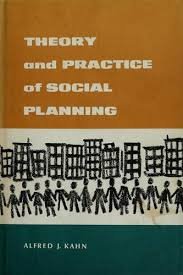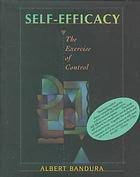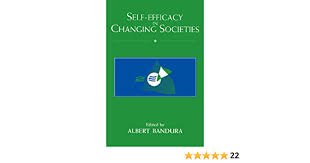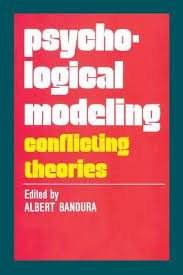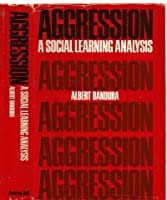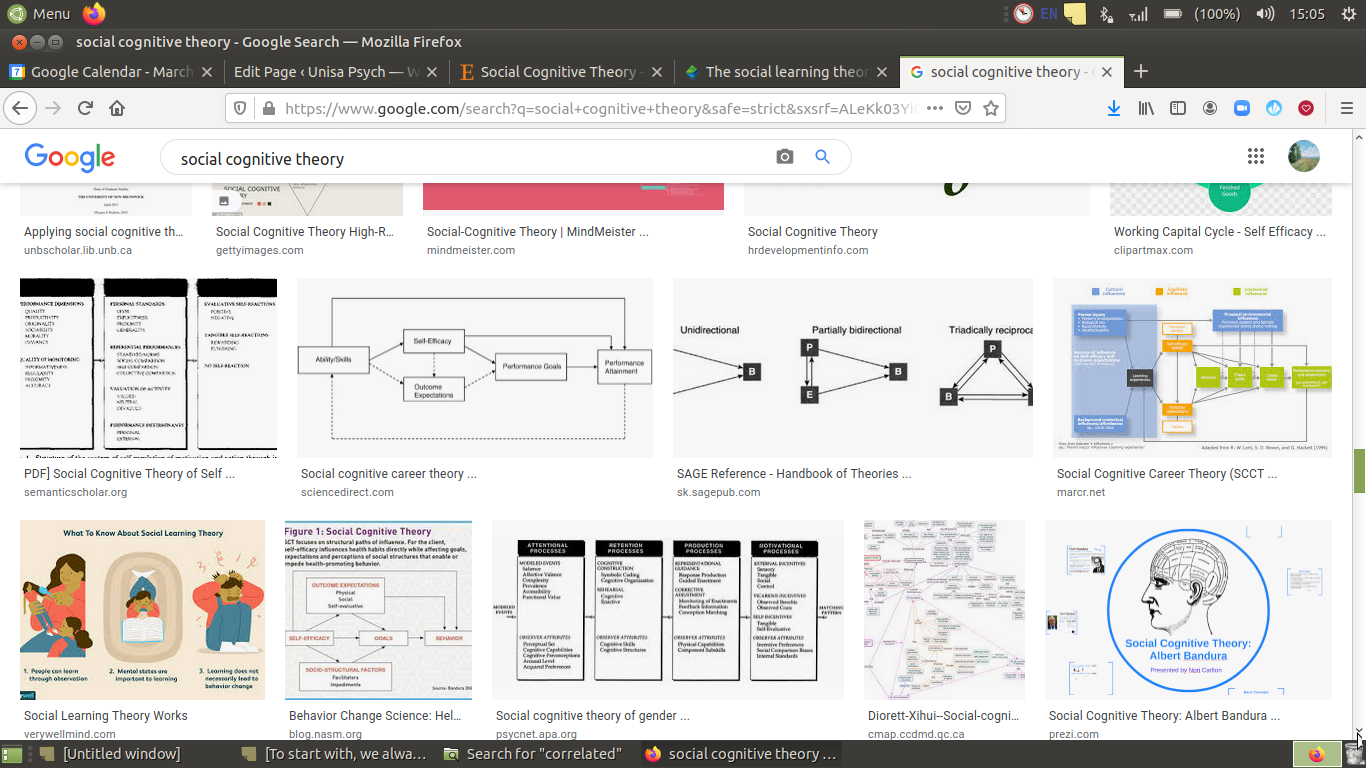
Why the social cognitive learning approach matters?
When you look at this the social cognitive learning approach (UNISA PYC2601), it is instantly familiar because it is so widely used.
You will recognize it in education, social planning, business, counseling, coaching, and many more disciplines.
The social cognitive learning approach is pragmatic. It allows for many of the nuances, complexities and quirks of real life. It is comfortable with both individual freedoms and social constraints and influences. It can be rigorous, testable and scientific. Yet it is user-friendly enough to slip comfortably into most pop psychology.
The Social Cognitive Learning Approach is Essentially:
- Behavioristic because behavior is learnt, and focuses on observable behavior.
- But explains behavior with cognitive psychology (which is unobservable).
- Also uses Gestalt psychology (the whole is greater than the parts, emphasis on perception)
- And phenomenology (consciousness as experienced subjectively, emphasis on intention)
3 Main Guys
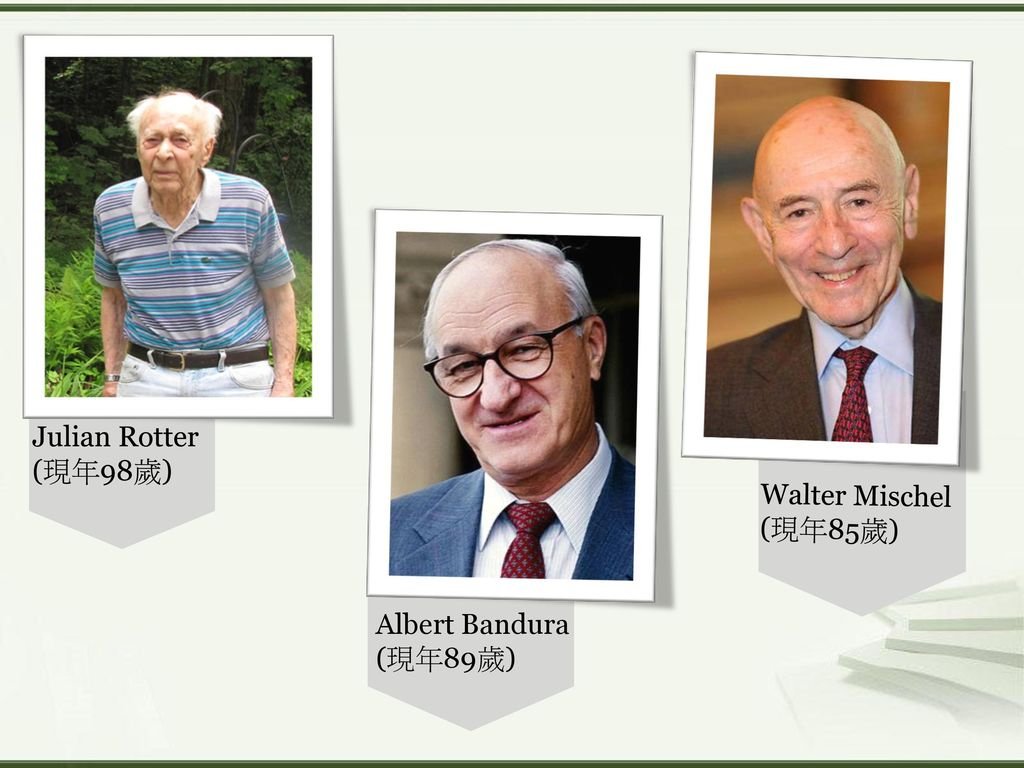
Julian Rotter: Social learning theory
Son of Jewish immigrant family. Born in New York in 1916, and experienced the Great Depression.
- subjective expectations and values matter more than the environment in social learning.
- internal or external locus of control
Albert Bandura: Social Cognitive Learning Theory
- small town Canadian farmer’s son
- Academically highly acclaimed.
- Behavior is the result of interactions between
- environment
- person
- the behavior itself (reciprocal determinism)
- Imitation/observational learning is key
Walter Mischel expanded and developed social cognitive learning theory
- Fled Nazi Austria with his family at the age of nine.
- expanded interactional approach (reciprocal determinism)
- role of expectations and self control
Unisa Assignment 1: The Social Cognitive Learning Approach: Guess first…
5 questions
QUESTION 6
Which of the following statements concerning observational learning is incorrect?
1) The imitation of behaviour is determined by the consequences of the model’s behaviour, and the observer’s cognitive processes.
2) Behaviour is acquired when the observer observes the model’s behaviour and regards the results of that behaviour positively.
3) Observational learning entails vicarious reinforcement, which means that the observer’s responses are positively reinforced.
4) Learning takes place through active elimination or weakening of undesirable behaviour by means of aversive counter-conditioning
[democracy id=”1″]
QUESTION 7
Boitumelo has just been informed about the death of her sister. Immediately after that, she is called to the office by her manager, who knows nothing about her situation. Her manager informs her that she has been promoted to a senior position (that she has been looking forward to for many years but could not be promoted due to limited opportunities for upward mobility in her firm). To her manager’s surprise, Boitumelo shows no signs of excitement but instead just shakes her manager’s hand, thanks him and leaves the office.
In terms of the social cognitive learning theory, reciprocal determinism is clearly indicated in this story. This means that
(1) regardless of the situation, people show a set pattern of individual differences.
(2) all behaviour and learning can be explained without any reference to needs or conscious experiences.
(3) there is an interaction between the person, the situation and the person’s behaviour
(4) differences in behaviour are chiefly or exclusively attributed to the influence of the situation
[democracy id=”1″]
Answer
Question 8
Simon belittles his wife, Kim, in front of their friends. Instead of the support that Simon expects from the men, they side with his wife instead, and Simon feels rather embarrassed at his behaviour. Barry, who witnesses this, decides never to humiliate his wife in front of others. In terms of social cognitive learning theory, Barry’s decision is an example of .
(1) imitation.
(2) counter-imitation
(3) modelling
(4) punishment.
[democracy id=”1″]
Answer
#counter-imitation
QUESTION 9
According to the social cognitive learning approach, an optimally developed person is someone who
(1) compensates for effective functioning within a particular situation.
(2) has a realistic self-efficacy perception.
(3) can regulate own behavior by using societal standards.
(4) recognizes that his/her behavior should not be dictated by a specific cultural context.
[democracy id=”1″]
Answer
#optimally-effective
QUESTION 10
Which person/s function/s optimally according to the social cognitive learning approach?
(a) Clare learned most of her behaviour through observational learning and she functions only by receiving positive reinforcers.
(b) John has a realistic self-efficacy perception and neither overestimates nor underestimates his own abilities.
(c) Doreen lives a very satisfactory, fulfilled and happy life of tension reduction, drive reduction and homeostasis through effective use of defense mechanisms.
(d) Mary demonstrates respect for the standards held by members of her society.
The answer is:
(1) John and Mary
(2) John
(3) John, Doreen and Mary
(4) Clare
[democracy id=”1″]
Answer
Social cognitive theories and Human Nature
- Environment plays a role, but so do people’s decisions and choices.
- Reciprocal determinism: behavior determined by interaction between:
- person
- situation
- behavior
- Reactions are specific to the combination of these 3
- People are not passive black boxes (like in hard core behaviorism). They are active.
- They perceive and interpret stimuli
- They set goals and plans
- They judge their past actions and re-plan and change their behavior.
Is Personality structured?
Freud’s understanding of personality has structure and conflict at the heart of it.
The social cognitive learning approach emphasizes:
- social: environment is part of the influence on the person
- cognitive: observation, planning, control, judgement etc
- learning: behavior is constantly modified according to outcomes, situation changes and personal variables
- approach: behavior is understood in terms of personal variables or personality functions.
Personal variables / Personality functions
What drives personality functions (such as motivation) ?
- interaction
- learning
They are motivated by the interaction between individual and situation.”
Personology textbook p299
And behavior is motivated by expected results.
Not by unverifiable drives.
Two types of learning:
- Own experience
- observation of the experience of others
Results that drive learning and behavior
- external rewards
- internal rewards: positive self-evaluation, self-mastery etc
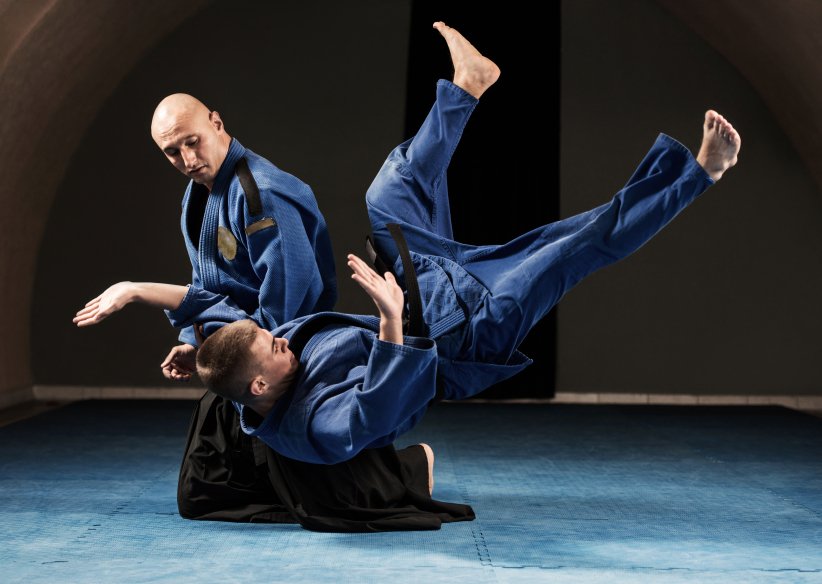
Individual capabilities
Bandera stated individuals have various capabilities. These capabilities underlie their functioning in response to the interactions between person, situation and behaviour.
- Symbolizing capability: fundamental human cognitive ability enabling:
- reflection
- planning
- communication
- influence
- cultural shared knowledge through experience
- cumulative knowledge
- Forethought capability: Can plan ahead
- Vicarious capability: Can learn through others experience
- Self-regulatory capability: Can live by own standards
- Self-reflective capability: Can have self image, evaluate self and create a perception of their own self-efficacy.
There is a tiny handful of his books at archive.org where you can read them online for free.
Self Efficacy
- Determines whether people will try in the first place.
- Influences choice of situations in terms of perception of the possibility of success.
- Higher self efficacy correlates with better motivation & persistence in attempting to get control of a situation. Therefore it correlates with a better chance of success.
- Lower self efficacy correlates with poor motivation and lack of persistence, and therefore with failure in a vicious circle of lowered self efficacy and failure.
Walter Mischel’s Personal variables/Personality functions
He called these cognitive-social person variables.
(But we can just call them capabilities really.)
And added:
- Encoding strategies – how people encode or interpret situations.
- Expectancy: What results people expect.
- Subjective values: What is important to you
- Self-regulating systems and plans: How you do things
- Competencies: What you can do
In short, different capabilities mean that people can do things well or badly or differently from one another. This is what variable actually means…

How people learn
- All behavior is learnt.
- People learn actively (not like passive behaviorist black boxes)
- 3 forms of learning: Direct, vicarious and self reinforcement/punishment.
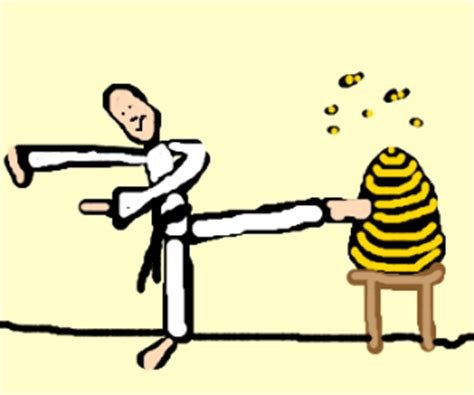
1. Direct reinforcement/direct punishment: You do something and then something good or bad happens. It is a cognitive process – people actually pay attention, predict, think and learn…

2. Vicarious reinforcement/punishment: You see someone else do something and what happens to them. This is a very important type of learning. It’s social, it happens through modelling, and people may choose do the opposite of what they observe. Imitation and counter imitation. Paying attention leads to retention of information. Reproduction is actually doing the same behavior as observed.

3. Self reinforcement/self punishment: You reward or punish yourself for your behavior. This may be internal (self-talk) or external: physical (outside the mind).
Observational learning
Figuring it out for education…
Observational learning is not only useful for understanding human behaviour but for regulating it. So let’s break down some of the factors a little more.
- The nature of the behavior: new? or familiar? Does it come with information in advance? Is it morally acceptable? Attention grabbing? Easy? Complex?
- Characteristics of the model: Who is doing it? A movie star or a low status person? A hip 30 year old, or a granny? man or woman? A charming comedian or or a bore? A role model or someone you see as an other?
- Characteristics of the observer: Bright young thing or part-time gangster? motivations, interests, values, self-confidence etcetera
- Results of the behavior: Is it punished or rewarded – this is a matter of interpretation – maybe all the cool guys get sent to the headmaster. And how bad is it? Do they come out with a swagger or a soggy tissue?
Observation of reward or punishment are both great for retention of info. Obviously, people are more likely to reproduce behaviour that is rewarded…
And assessment of outcomes is obviously relative too. A 10 Rand tip may mean nothing to one person, and a lot to another.
Imitation and counter-imitation can of course also somewhat different to the observed behaviour. People can apply rules of conduct. A child witnessing cruelty may become more violent. A child with generous parents may learn to be kind in general.
Self efficacy has a direct effect on the ability of a person to learn from observation.
Self regulation is the most important form of learning.
For exams
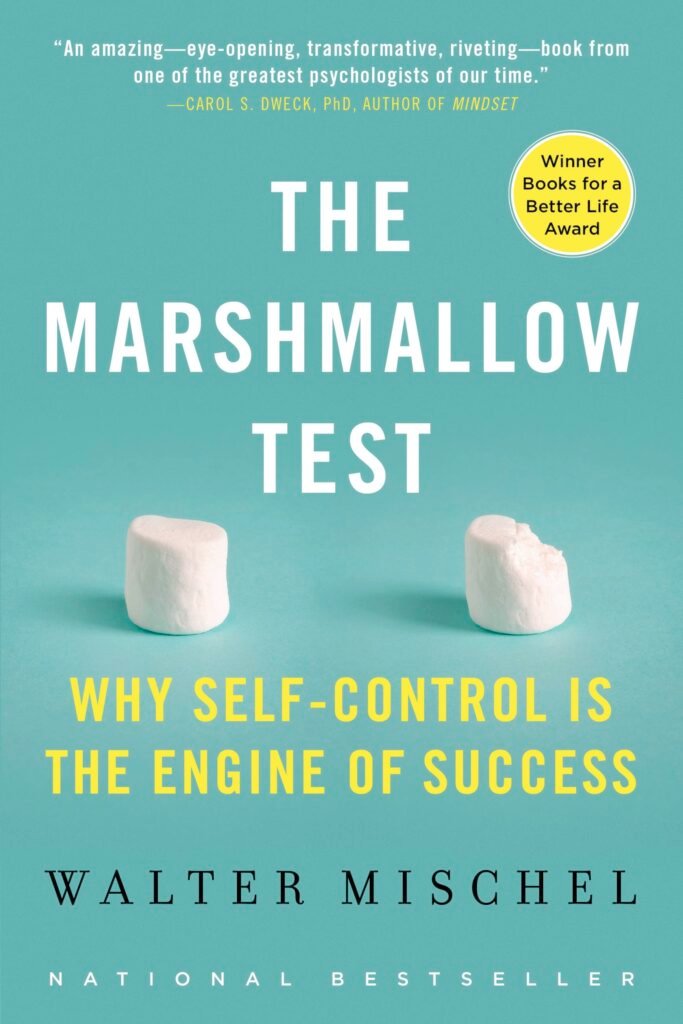
Optimally effective people have a realistic self-efficacy perception.
For exams

Views on Psychopathy
- Pathological behavior is learnt, naturally, just like any other behavior.
- It is related to lack of self-efficacy.
- Various combinations of personal variables are involved in various pathologies

For instance, global thinking is linked to depression: “Everybody hates me.”
As is stability: “They always have.”
And internal locus: “Because of who I am.”
Practical application & uses of the social cognitive learning approach
Social cognitive learning theory is everywhere. It is useful for psychotherapy, and other disciplines which are about understanding and influencing human behaviour. And gives a useful, grounded, pragmatic frame of reference in most situations.
In psychotherapy, there is a lot of use of modelling, self-regulation and cognitive re-framing. These are all pretty much tried and tested and found to be useful therapeutic interventions in many different circumstances.
Psychological tests tend to be situational.

Aggression is both inborn and learnt.
It is rewarded, modeled by others, provoked and reproduced depending on the person, situation and results of previous behavior.
